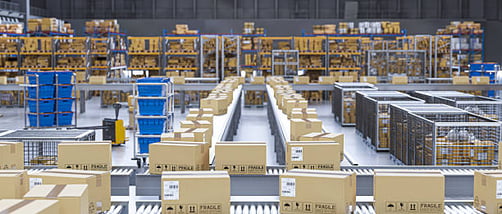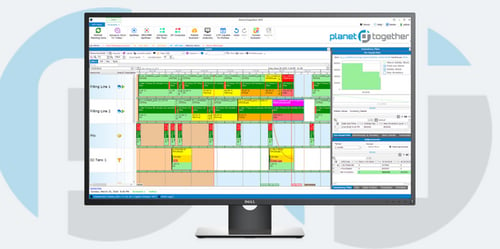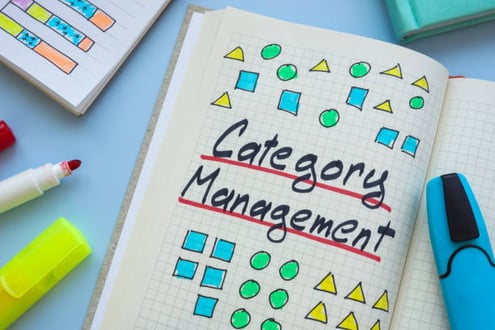Elevating Strategy and Category Management in Packaging Manufacturing with PlanetTogether and ERP Integration
In packaging and containers manufacturing, supply chain managers are navigating increasing complexity. Fluctuating raw material costs, growing customer expectations, environmental regulations, and global disruptions require more than just operational agility—they demand strategic foresight. One area where strategic depth is becoming essential is category management—the practice of grouping related products or materials into categories to streamline procurement, optimize supplier performance, and reduce costs.
To meet these demands, modern supply chain leaders are turning to advanced planning and scheduling (APS) solutions like PlanetTogether, integrated with robust ERP platforms such as SAP, Oracle, Microsoft Dynamics, Kinaxis, or Aveva. These integrations allow for a seamless flow of data across procurement, planning, and production, unlocking new opportunities for strategy-driven category management.

What Is Category Management and Why It Matters
Category management involves the segmentation of procurement into discrete groups or “categories” that are managed strategically to reduce total cost of ownership (TCO), ensure supply continuity, and enhance supplier relationships. In the packaging industry, categories may include raw materials like resins, papers, adhesives, or sustainable alternatives such as biodegradable films.
Done effectively, category management enables:
Strategic sourcing and long-term supplier partnerships
Tailored procurement strategies based on product and market dynamics
Improved negotiation power through consolidated spend
More resilient supply chains by diversifying and segmenting risk
However, to fully reap these benefits, supply chain managers must align procurement strategies with real-time operational data—an area where traditional ERP systems alone often fall short.

The Role of PlanetTogether in Enhancing Category Strategy
PlanetTogether's APS platform delivers powerful capabilities for supply chain managers to make data-driven, strategic decisions by:
Enhancing Visibility Across Categories
PlanetTogether collects and consolidates data across production, procurement, and planning functions. When integrated with ERP systems like SAP, Oracle, Microsoft Dynamics, Kinaxis, or Aveva, it provides a real-time, centralized view of:
Inventory levels across categories
Supplier lead times and performance
Category-specific cost structures
Demand forecasts and usage trends
This transparency enables more informed decisions around supplier selection, risk management, and contract negotiation.
Supporting Predictive Analytics for Category Spend
Category spend is dynamic—affected by demand volatility, price fluctuations, and supplier performance. PlanetTogether’s predictive analytics, enhanced by ERP data, help forecast future needs, model pricing scenarios, and assess the impact of sourcing changes.
For instance, if raw material costs in the “plastic packaging” category spike due to resin shortages, PlanetTogether can simulate production scenarios using alternative materials, assess cost implications, and support faster decision-making.
Aligning Procurement with Production
One of the most powerful features of PlanetTogether is its ability to align supply with manufacturing priorities. A category strategy is only effective if procurement decisions are in sync with production requirements. PlanetTogether achieves this by:
Synchronizing BOMs and material requirements planning (MRP) from ERP systems
Prioritizing critical materials in scheduling
Recommending order quantities and timing based on actual production needs
This integration minimizes overstocking, shortages, and waste, while improving supplier accountability for high-priority categories.

Integrated Strategy: PlanetTogether + ERP
Let’s take a closer look at how integration with popular ERP systems enhances category management:
SAP Integration
When integrated with SAP, PlanetTogether pulls material master data, demand forecasts, and supplier information to create category-specific dashboards. Procurement teams can quickly identify which categories are over-reliant on single suppliers or where there are delivery inconsistencies.
Oracle Integration
Oracle’s procurement modules, combined with PlanetTogether’s scheduling insights, help drive contract compliance and KPI tracking across categories. For example, delivery performance can be monitored by supplier, material type, or region, helping refine sourcing strategies.
Microsoft Dynamics Integration
Integration with Microsoft Dynamics enables more agile procurement. Category managers can use production forecasts from PlanetTogether to issue timely POs or negotiate volume discounts based on upcoming production peaks.
Kinaxis Integration
PlanetTogether paired with Kinaxis enhances end-to-end supply chain orchestration. This is particularly effective for sustainability-focused categories like biodegradable or recycled materials, where PlanetTogether can dynamically prioritize these based on customer demand or ESG goals.
Aveva Integration
Aveva’s strength in asset and performance management complements PlanetTogether by correlating supplier reliability and material quality with equipment efficiency. Poor-quality inputs in a specific category can be flagged quickly, enabling corrective action.
Strategic Category Management in Action
Let’s consider a real-world example:
Scenario: A packaging manufacturer faces rising costs in the “flexible film” category due to market shortages.
Challenge: Identify ways to mitigate risk, control costs, and maintain supply for critical SKUs.
Solution with PlanetTogether Integration:
APS pulls production forecast data showing high demand for certain SKUs using flexible film.
It evaluates alternate BOMs and simulates cost and production timelines with substitutes.
Procurement identifies qualified secondary suppliers in the category using ERP supplier data.
Scheduling recommendations prioritize batches that use less constrained materials.
Outcome: The company ensures continuity for high-priority products, diversifies its sourcing base, and prevents a production halt—all while protecting margins.
Benefits for Supply Chain Managers
With PlanetTogether and ERP integration, packaging supply chain managers can expect:
Strategic Alignment: Real-time synchronization between sourcing and production
Cost Control: Better pricing leverage through volume forecasting and supplier performance analysis
Risk Mitigation: Early warnings on supply disruptions and mitigation planning
Sustainability Gains: Easier tracking and prioritization of eco-friendly material categories
Agility: Faster adjustments to category strategy based on operational realities
In the packaging and containers industry, where efficiency, flexibility, and responsiveness are essential, elevating category management from a transactional activity to a strategic function is no longer optional—it’s a competitive necessity.
By integrating PlanetTogether with ERP platforms like SAP, Oracle, Microsoft, Kinaxis, or Aveva, supply chain managers can unlock powerful, synchronized tools that elevate decision-making, reduce risk, and optimize spend across every category.
As the market continues to demand agility and intelligence, those who embrace this strategic, integrated approach to category management will lead the future of packaging supply chains.
Are you ready to take your manufacturing operations to the next level? Contact us today to learn more about how PlanetTogether can help you achieve your goals and drive success in your industry.
Topics: PlanetTogether Software, Integrating PlanetTogether, Better Cost Control, Packaging Manufacturing, Enhancing Visibility Across Categories, Supporting Predictive Analytics for Category Spend, Strategic Alignment





















LEAVE A COMMENT